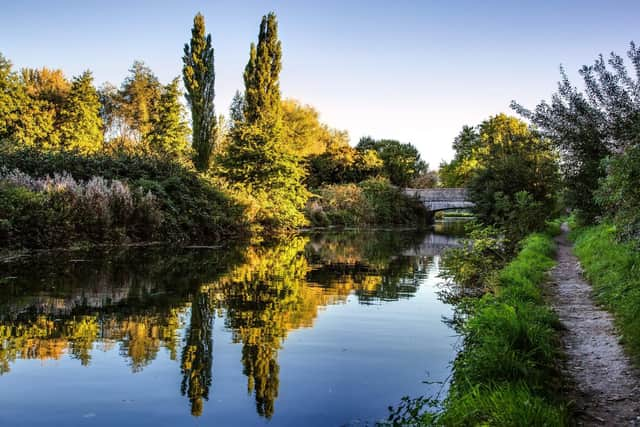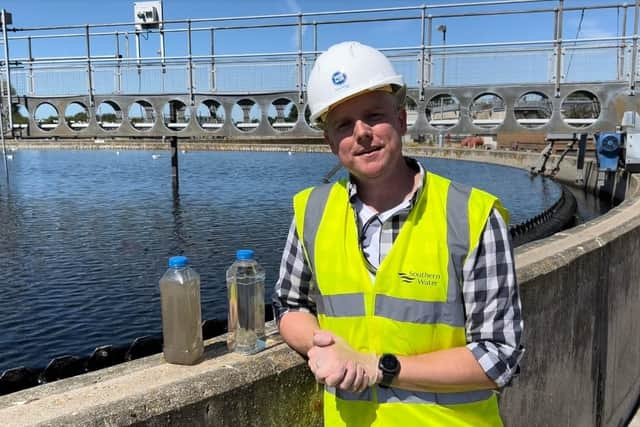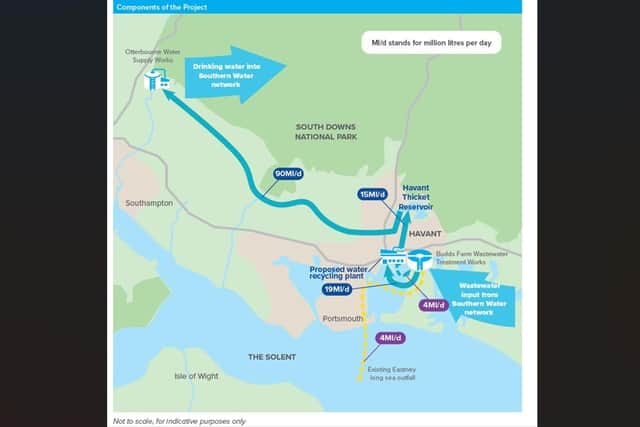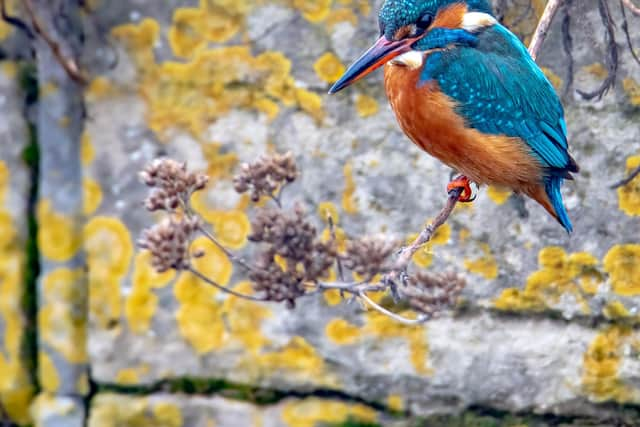Southern Water hopes to solve drought dilemma with multi-million project to make wastewater drinkable
and live on Freeview channel 276
Southern Water is currently consulting on its plans to build a state-of-the-art water recycling plant close to its Budds Farm Wastewater Treatment Works, in Havant, which will transform how the water system responds to droughts.
It comes as the firm already begins to feel the effects of water scarcity – with a hose pipe ban set to be imposed in parts of Hampshire this week and residents being advised to curtail baths and leave cars unwashed.
Advertisement
Hide AdAdvertisement
Hide AdOver the last six months, the county has seen just 65 per cent of the long-term average amount of rain expected for the period, and river flows are approximately 25 per cent lower than they should be for July – the equivalent to losing more than 25 million bathtubs of water.


Seeing the trends of hot weather, less rainfall, and increasing demand, the Environment Agency changed water abstraction licences in 2018, in an attempt to safeguard the rare and delicate ecosystems of the River Test and River Itchen.
But it means Southern Water could face an 80 per cent shortfall in supply should the region be hit by an exceptional, one-in-200-years drought – which may become more common due to climate change.
Now, the water company hopes that its plans for the UK’s first large-scale system to turn wastewater into drinking water will solve the problem.


Advertisement
Hide AdAdvertisement
Hide AdSam Underwood, the senior stakeholder manager for the Water For Life infrastructure project, said the urgency of the issue – and the science behind the solution – was winning over residents.
He said: ‘What we're finding in the consultation is that people are recognising the need for water recycling.
‘They may be a bit nervous as we're talking about waste water and drinking water in the same sentence.
‘But once we explain the process, the science within the water recycling plant, and the sheer amount of treatment that happens, people recognise that it’s safe, wholesome, resilient form of water for the future.’


Advertisement
Hide AdAdvertisement
Hide AdUsing microfiltration and reverse osmosis, the water recycling plant will treat the wastewater, before it it is then treated again at the Otterbourne Water Supply Works.
Sam added: 'We really do need to look at more intelligent ways of using water wisely, like water recycling.
‘Treated waste water is currently released 5.7km out to sea from Budds Farm.


‘We (will) treat it through the water recycling process, clean it up so it’s purified water, top up the levels in the reservoir, and that means we have to take less water from sensitive chalk streams when there is a drought.’
Advertisement
Hide AdAdvertisement
Hide AdThe multi-million facility will pump more than 85 million litres of water – the equivalent of 30 Olympic-sized swimming pools – around the Hampshire supply network every day during times of drought, including topping up the planned Havant Thicket water reservoir.
More than 500 resident have already attended drop-in sessions to give their feedback on the recycling plant plans, as Southern Water considers several different pipeline routes to the Otterbourne Water Supply Works, which could be reached by going around Southwick, Wickham, and Bishop’s Waltham.
Regarding the impact on customers’ bills, Sam said: 'Any of those customers that pay a Southern Water supply bill will be paying for this – that's for the whole region. That includes Kent and Sussex.
‘It will be averaged out across the life time of the project. So the cost will go (across) 60 or 70 years. We're looking to minimise the impact.’
Advertisement
Hide AdAdvertisement
Hide AdThe Hampshire And Isle of Wight Trust is ‘examining’ the Southern Water proposal for a Water Recycling Plant in detail, and ‘looks forward to learning more about their future plans’, according to Kathryn Boler, the trust’s Watercress and Winterbournes partnership manager.
She said: ‘With the weather growing warmer due to climate change, we are seeing more erratic rainfall and an uptick in our own water consumption. Balancing the needs of people and wildlife is therefore crucial to keeping our precious chalk streams in good health, and we welcome innovations in achieving this.’
The wildlife conservationist said that the county’s ‘iconic species’ were at risk if water scarcity was not addressed as soon as possible.
Kathryn added: ‘In Hampshire, we are currently heavily reliant on water drawn from our chalk aquifer. Unfortunately, we share this source with our globally rare chalk streams, which can be negatively impacted when our water demand is high.
Advertisement
Hide AdAdvertisement
Hide Ad‘Low water levels can cause overheating, deoxygenation, eutrophication, and loss of plant life. As a result, iconic species like the kingfisher, brown trout, water vole, and white-clawed crayfish can suffer from a lack of food, failed reproduction, stranding, or suffocation.’
As part of the plans for the reservoir development, the Environment Agency has worked to enable £2.5 million of environmental improvements including 5.5km of river restoration downstream of the proposed project that will protect Hampshire’s iconic chalk streams.
Southern Water is working to have the wastewater recycling plant operational sometime after 2025.
It’s consultation will run until August 16.
An online briefing and Q&A session will be held at 7pm on Thursday, August 11, with registration available by emailing [email protected].
Comment Guidelines
National World encourages reader discussion on our stories. User feedback, insights and back-and-forth exchanges add a rich layer of context to reporting. Please review our Community Guidelines before commenting.

